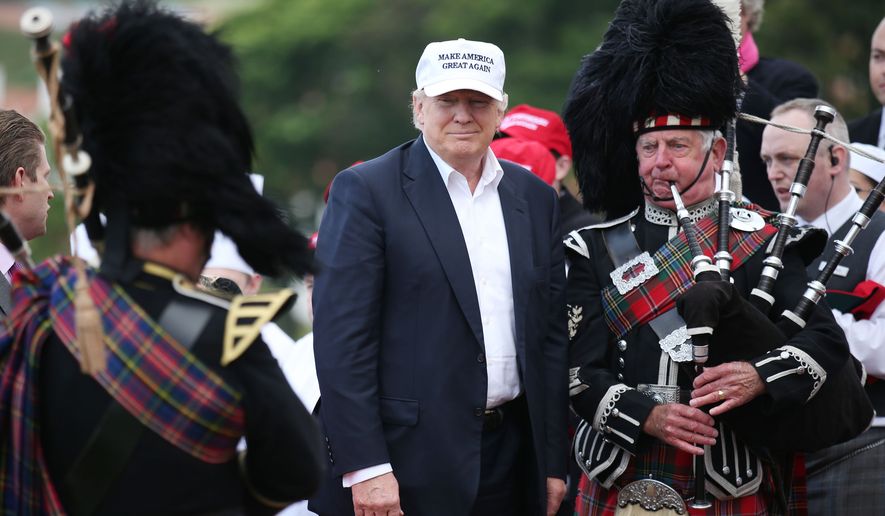There has been a lot of commentary about the British decision to leave the European Union and its implications for Donald Trump and the American presidential race.
Trump was at his golf course in Turnberry, Scotland, the day after the vote. He was enthusiastic about Brexit and claimed it was a model for the American choice. He suggested the British hostility to bureaucracy in Brussels paralleled the American hostility to bureaucracy in Washington. He felt the concerns about massive immigration and Syrian refugees were the same in both countries. He drew a direct comparison between the British desire to be independent again and the American desire to put America first in foreign relations. And of course, he did the entire press conference wearing a “Make America Great Again” hat.
Hillary Clinton took the opposite approach. Despite the defeat of the British establishment and its “Remain” campaign, she was committed to stability and risk avoidance. She emphasized the dangers of Brexit whereas Trump had emphasized the opportunities.
Yet focusing on Brexit creates much too narrow a basis for understanding the winds of change sweeping through the Western world.
The first harbinger of change this year was May 23, the day of the Austrian presidential elections.
In the first round, the two parties that had dominated Austria for the past half-century came in fourth and fifth. An independent came in third. The two formerly minor parties in the run-off were a hardline conservative anti-immigrant candidate and a green who favored more immigration. The entire national establishment mobilized to block the anti-immigrant candidate. He got 49.65 percent of the vote.
The second big signal of change was the Italian municipal elections. Out of disgust with widespread corruption, an Italian comedian named Beppe Grillo launched the Five Star Movement in 2009. In the 2013 elections, it came in second. This month, the Five Star Movement candidates won the mayor’s offices in both Turin and Rome.
Virginia Raggi, 37, became the first female mayor in Rome’s 2,800-year history. In the midst of a corruption scandal which forced the previous mayor to resign, Raggi got 67 percent of the vote against the prime minister’s party. In Turin, the results were similar and the reform movement won in 17 other cities.
Brexit, then, was at least the third big-change election in the West this year. The entire British establishment, the business leadership, President Obama and Hillary Clinton all came out for the Remain side. They lost 52-48 in a stunning upset which the polls did not predict. In England and Wales, the margins were much higher as people voted to make Britain independent again.
Fourth and finally, last Sunday was the little-noticed election of a new president in Iceland. The former president had resigned in a scandal caused by release of the Panama Papers. He had broken no laws but his previously secret investments were very unpopular. The winner of the presidential elections with 39 percent of the vote was Gudni Johannesson, a history teacher. Second, with 28 percent of the vote, was Halla Tomasdottir, a businesswoman. The leading professional politician, a former prime minister, got 13 percent.
These results from four different countries show a consistent momentum toward throwing out established politicians and rejecting the establishment.
There are real warnings here for Clinton and real signs of encouragement for Trump.




Please read our comment policy before commenting.